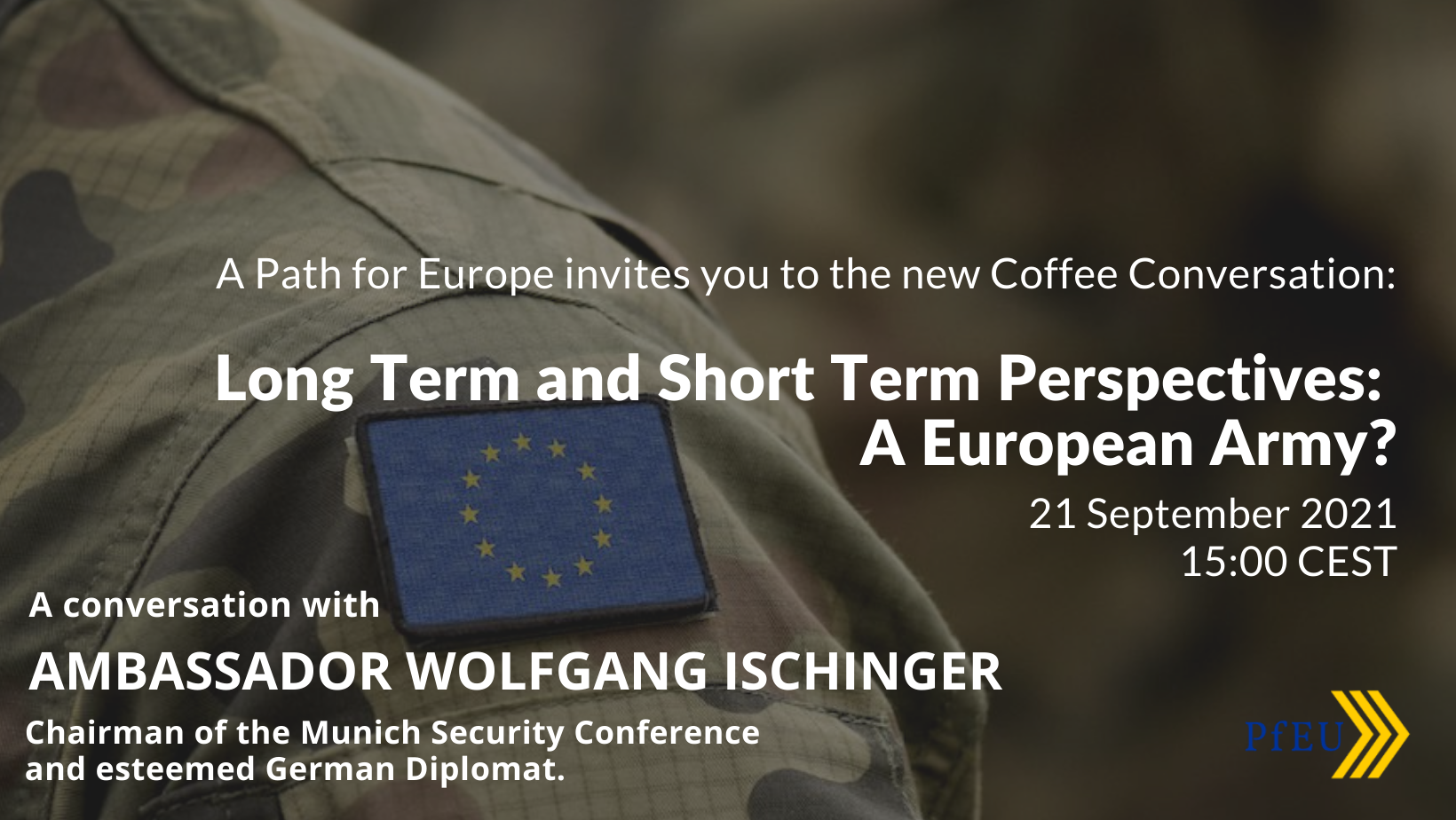
Long Term and Short Term Perspectives: A European Army?
Speaker: Ambassador Wolfgang Ischinger
Ambassador Ischinger has been Chairman of the Munich Security Conference (MSC) since 2008.
A German career diplomat, he was State Secretary (Deputy Foreign Minister) from 1998 to 2001. From 2001 to 2006, he was the Federal Republic of Germany’s Ambassador to the U.S., and from 2006 to 2008, to the Court of St James’s.
He is a Senior Professor at the Hertie School, Berlin, and serves on the boards of companies as well as non-profit-institutions, including Atlantik-Brücke/Berlin, the American Academy/Berlin, and the Atlantic Council of the United States/Washington D.C.
In conversation with: Polen Türkmen
Polen Türkmen, research associate at A Path for Europe (PfEU). Polen’s areas of interest include EU foreign affairs, EU — Turkey relations, EU’s neighbourhood policy, disinformation, populism and political theory.